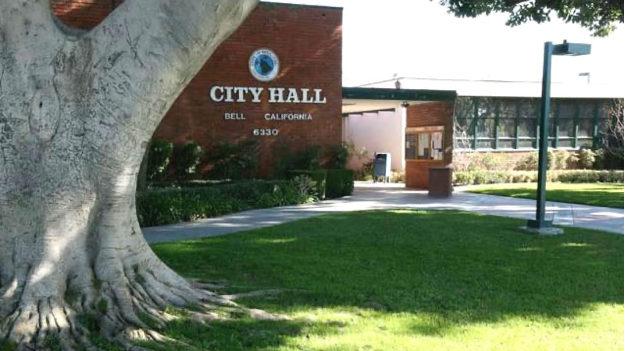CommentsGUEST WORDS-Southeastern Los Angeles County is a jumble of small cities containing mostly poor and/or immigrant residents who have been clobbered by the COVID-19 pandemic and the deep recession it induced.
However, the region is also “a corridor of corruption” in the words of Assembly Speaker Anthony Rendon, who represents a piece of it.
In this century alone, more than a dozen officials in cities such as Bell, Cudahy, South Gate and Lynwood have been convicted of corruption, but the syndrome continues.
Poverty, low voter involvement and a lack of civic organizations make them ripe targets for takeovers by corrupt political figures who help themselves to lavish salaries and expense accounts and hand out fat contracts to their pals.
Tom Hogen-Esch, a professor at California State University, Northridge, wrote about the region’s endemic corruption after a spectacular scandal in Bell, exposed by the Los Angeles Times.
“It would be a mistake to dismiss the Bell scandal as merely another spectacle of government corruption in southeast Los Angeles,” Hogen-Esc wrote. “Above all, abuses in Bell and other California cities should be viewed as symptoms of a larger failure of political systems to incorporate new immigrants.”
“Failure to recognize the problem and change the underlying conditions that lead to municipal corruption risks a further erosion of civic engagement and democratic legitimacy in high immigration cities,” he continued.
One of the many agencies to fall prey is the Central Basin Municipal Water District, which provides water to about 1.5 million residents in 24 cities and unincorporated communities.
Journalists, civic watchdog groups and governmental auditors have cataloged the agency’s managerial shortcomings and conflicts of interests.
In 2015, for instance, state Auditor Elaine Howle delved into Central Basin and found a list of questionable and/or illegal practices, including a secret “legal trust fund” of nearly $3 million, contracts awarded and extended without bidding, giveaways of money for obscure purposes, and shoddy hiring practices.
A year before, Central Basin had figured in a federal corruption case against members of the Calderon family, long a powerful political presence in the region.
State Sen. Ron Calderon pleaded guilty to mail fraud and his brother, former Assemblyman Tom Calderon pleaded guilty to money-laundering.
After Tom Calderon left the Assembly, he started a political consulting business and one of his first clients was Central Basin, which paid him nearly $1 million over 10 years to provide “valuable insight and guidance.”
Finally, however, something is being done about Central Basin — an attempt to abolish it.
Senate Bill 625, carried by Sen. Steve Bradford, an Inglewood Democrat, which is near enactment, would wipe out the district and transfer its duties to another agency, the Water Replenishment District of Southern California.
“The Central Basin Municipal Water District (CBMWD) is in disarray,” Bradford argues, citing a power struggle among directors that has essentially stopped operations and its refusal to comply with open government laws.
Central Basin certainly deserves a death sentence, but the larger issue of endemic corruption in southeastern LA County remains unresolved.
While federal authorities have occasionally swooped in with indictments, such as the Calderon case, local prosecutors and the state attorney general, Xavier Becerra, have shown little interest in attacking the region’s corrupt culture.
Two years ago, replying to a direct question about the region’s corruption, Becerra replied, “We defer to the locals. I don’t have the resources to do what the locals should be doing.”
That’s pathetic.
(Dan Walters writes for CalMatters.com … where this piece was first posted.)
-cw
















